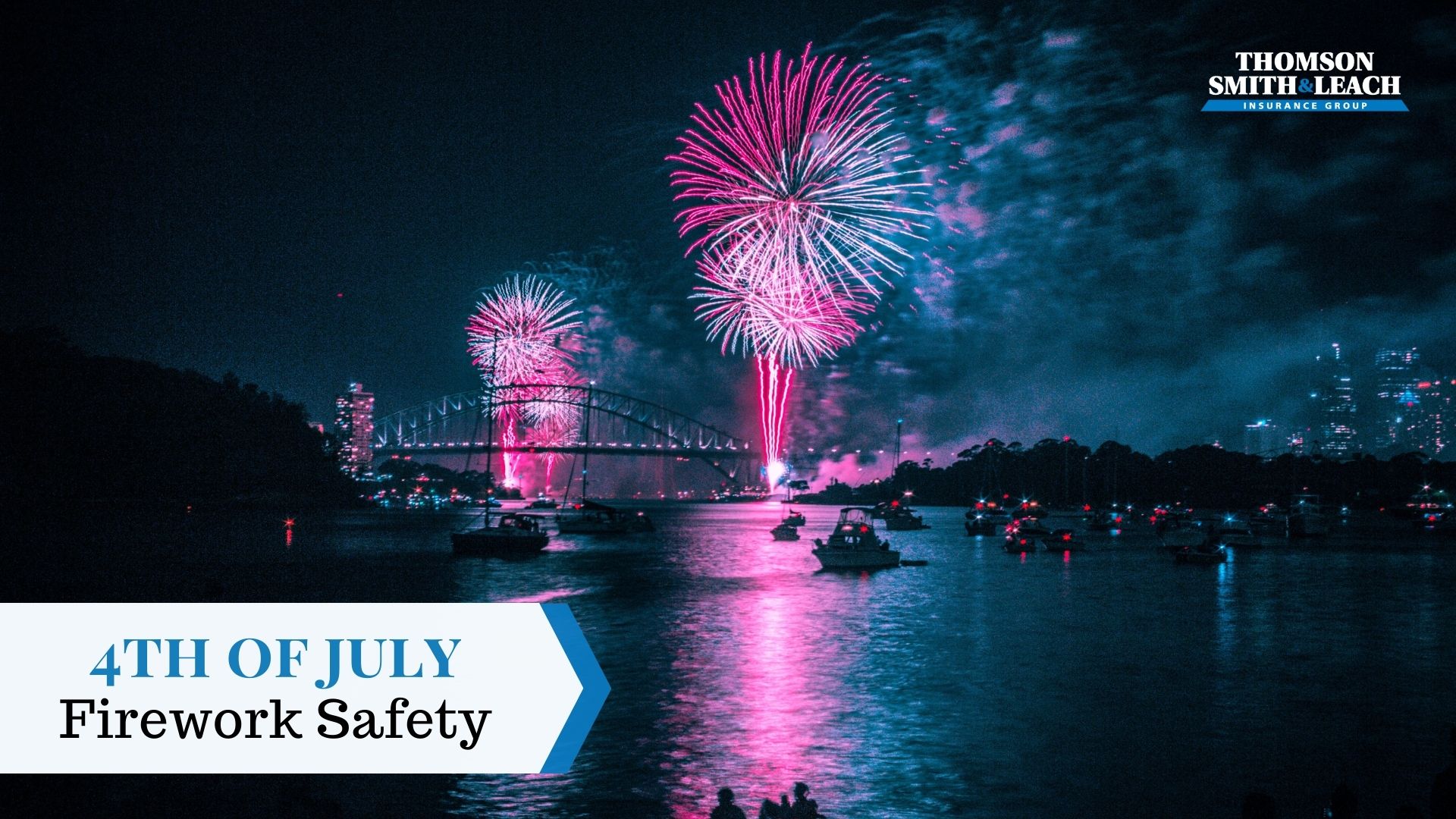The fourth of July isn’t complete without fireworks to commemorate the red, white, and blue. While this provides a visual spectacle for the whole family to enjoy, fireworks are not toys and require extremely careful handling. Here are some firework safety practices to keep in mind if you’re purchasing and setting off fireworks at close range.
What Damage Can Fireworks Cause?
First, let’s discuss the damage fireworks are capable of causing if one isn’t careful. According to the National Fire Protection Association, there were 19,500 fires caused by fireworks in 2018. This led to 46 injuries and $105 million in property damages.
When you light the fuse on a firework, it can go off in as little as one to three seconds. This creates projectiles that can move at an average speed of 80 mph, depending on the size of the shells. Furthermore, fireworks can ignite prematurely and explode, causing severe injury.
Firework Safety Tips
Now that you understand the potential dangers, here are some ways to stay safe when setting and igniting fireworks.
1. Alcohol and Fireworks Do Not Mix
Fourth of July celebrations may include alcohol; this is fine in moderation. However, whoever sets off the fireworks must be sober. Being impaired may affect your ability to read and understand the instructions on the package. It also affects your gauge of safe distancing.
2. Keep Fireworks Away from Property
Fireworks should be lit in an open area. As a general rule, there should be a minimum of a 30-feet radius between the fireworks and property. The area should also be clear of flammable materials, including trees and other vegetation. Only light the fireworks on a hard surface like pavement or asphalt; never light on a grassy turf.
3. Keep a Fire Extinguisher Nearby
A small fire may erupt when the fireworks go off. As a safety measure, have a fire extinguisher on hand. If one isn’t available, then consider a bucket of water or a hose.
4. Do Not Touch the Firework Casings
Do not touch the remnants of the firework casings after they go off. They may be hot to the touch and can cause burns. Wait at least 30 minutes before you dispose of the pieces. Do not let children or pets get near them.
5. Be Careful with Sparklers
Sparklers are like mini fireworks that you hold in your hand. While these may appear children-friendly, do not let young kids handle them. Sparklers can burn as hot as the fire on a stove. The sparks can also catch and burn through clothing.
6. Wear Gloves
According to the American Society for Surgery of the Hand, 42% of firework-related accidents involve injury to the hands. As a safety precaution, wear gloves and long sleeves when handling and lighting fireworks. 19% of injuries are to the head and face, so donning safety goggles is also a good idea.
What Do You Do if a Firework Doesn’t Go Off?
What should you do in the event a firework fails to go off? What you should never do is get up close and relight it. The firework may abruptly explode. Here’s what you should do: let the fireworks sit for at least 30 minutes. After sufficient time has elapsed, place the contents inside a bucket of water and let it sit overnight. Dispose of the fireworks the next day.
Read also: How to Prevent Fires Within Your Home
Protect Your Home This Fourth of July
While the above firework safety tips can protect your home from house fires, fireworks are just one of many factors that can damage your property. This is why all homeowners should financially safeguard their homes. Our team members at Thomson, Smith & Leach Insurance Group, an independent insurance agency in Lafayette, Franklin, and Abbeville, LA, can determine a policy that’s right for your coverage needs. Contact us for a free quote today!
Sources:
https://www.fireworkscrazy.co.uk/how-fast-are-fireworks/
https://www.pyrocreations.com/Pyrotechnic-Blog/fireworks-safety-tips
https://www.assh.org/handcare/blog/12-fireworks-safety-tips


Recent Comments